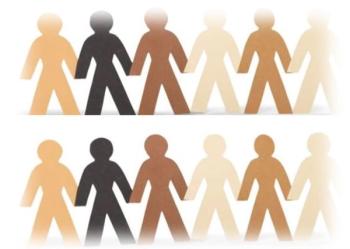
Stroke Patients May Get Faulty Advice from Hospital Healthlines
MORGANTOWN, W.Va. -- Operators who staff hospital healthlines are often unable to recognize the symptoms of a stroke, investigators here found.
MORGANTOWN, W.Va., July 6 -- Operators who staff hospital healthlines are often unable to recognize the symptoms of a stroke, investigators here found.
When investigators called 46 such healthlines and described a standardized scripted stroke scenario, 10 operators (22%) recommended that the caller contact their primary care physician, instead of calling 9-1-1, according to a study reported in the July 5 issue of Stroke.
A quarter of the healthline operators could not identify a single stroke symptom and, in 18 cases, callers were transferred at least once.
The results indicate that a substantial proportion of stroke patients "are in jeopardy of falling out of the window for therapy," concluded Brett Jarrell, M.D., and colleagues, at West Virginia University.
Overwhelming evidence shows that stroke patients have shorter prehospital delays when an ambulance takes them to an emergency department, authors said. Calling a 9-1-1 emergency service plays a critical role in getting stroke patients appropriate care in the shortest time possible.
Yet some patients with stroke symptoms call a hospital healthline for advice.
To evaluate the advice such patients are given, the investigators identified 82 healthlines at hospitals with neurology residencies, and 46 participated in the study. The participating healthlines were located in 41 cities in 27 states and served a total population of 30,121,684, including more than 3 million residents older than 65.
When the investigators called each healthline, the operator who answered was given a scenario involving a hypothetical 65-year-old man who had had weakness in the left arm and leg and difficulty speaking for about 25 minutes. The operator was asked to choose one of four possible pieces of advice to give the caller:
- Wait to see if the symptoms improve.
- Contact a primary care doctor.
- Drive the patient to an urgent care center or emergency department.
- Call 9-1-1 for ambulance transport to a local hospital.
Each healthline operator was also asked to name common signs and symptoms of stroke.
If the operator transferred a call, the process was repeated.
Ten operators recommended that the caller contact a primary care physician, six of them worked for a healthline at a hospital with an accredited stroke center. The remaining 36 operators correctly recommended calling 9-1-1.
Four of the 10 operators who recommended contacting a primary care physician were able to name one or more signs and symptoms of stroke; 11 other operators (24% of the total) could not name even one.
Of the 18 calls that were transferred, most were directed to the hospital's emergency department.
The investigators said their results reveal a need for improved stroke education of healthline operators.
At a minimum, they suggested, operators should be able to recognize elements of the Cincinnati Prehospital Stroke Scale: facial droop, arm drift, and slurred speech.
Perhaps even more important, they said, hospitals and medical centers should emphasize calling 9-1-1 rather than a healthline for suspected stroke symptoms.
Newsletter
Enhance your clinical practice with the Patient Care newsletter, offering the latest evidence-based guidelines, diagnostic insights, and treatment strategies for primary care physicians.


































































































































